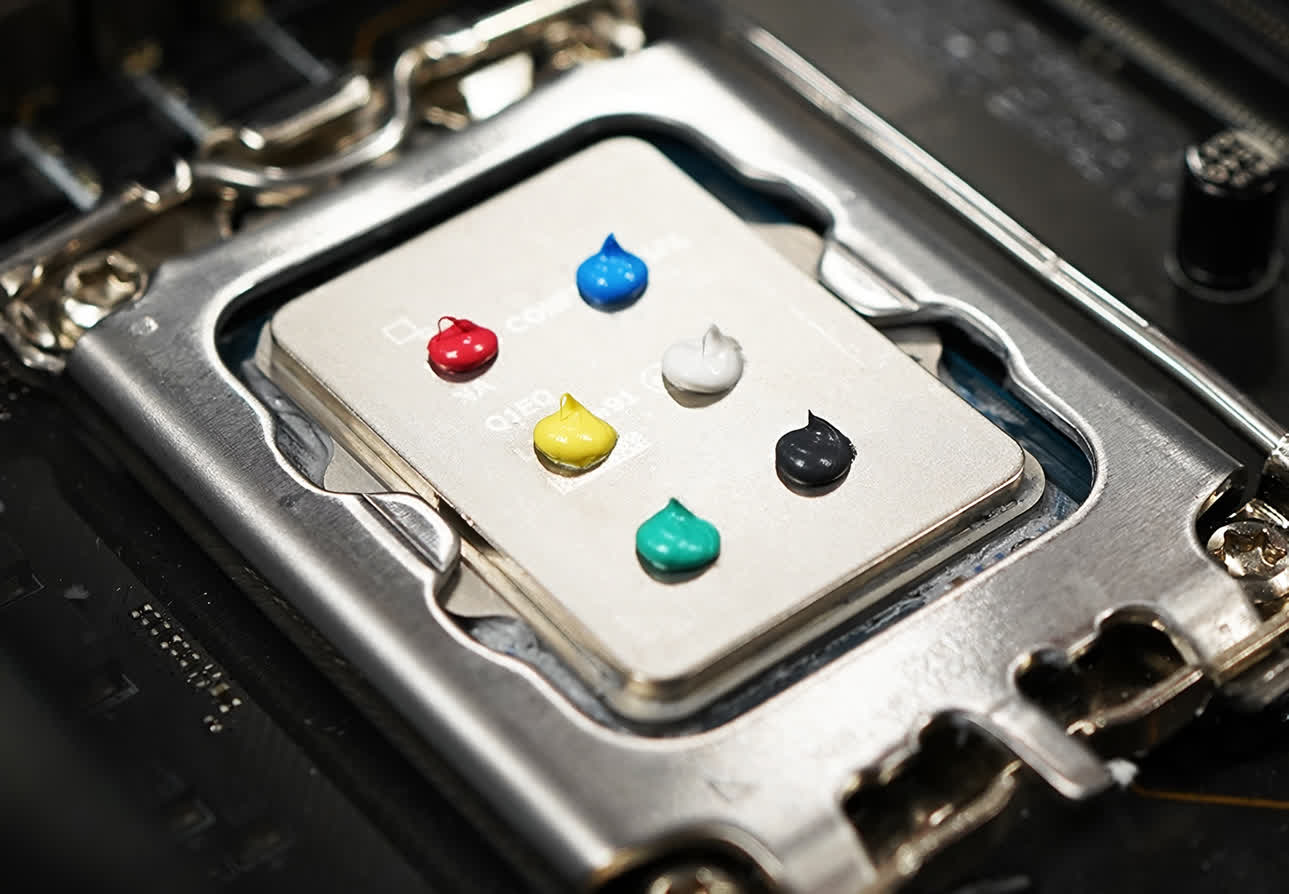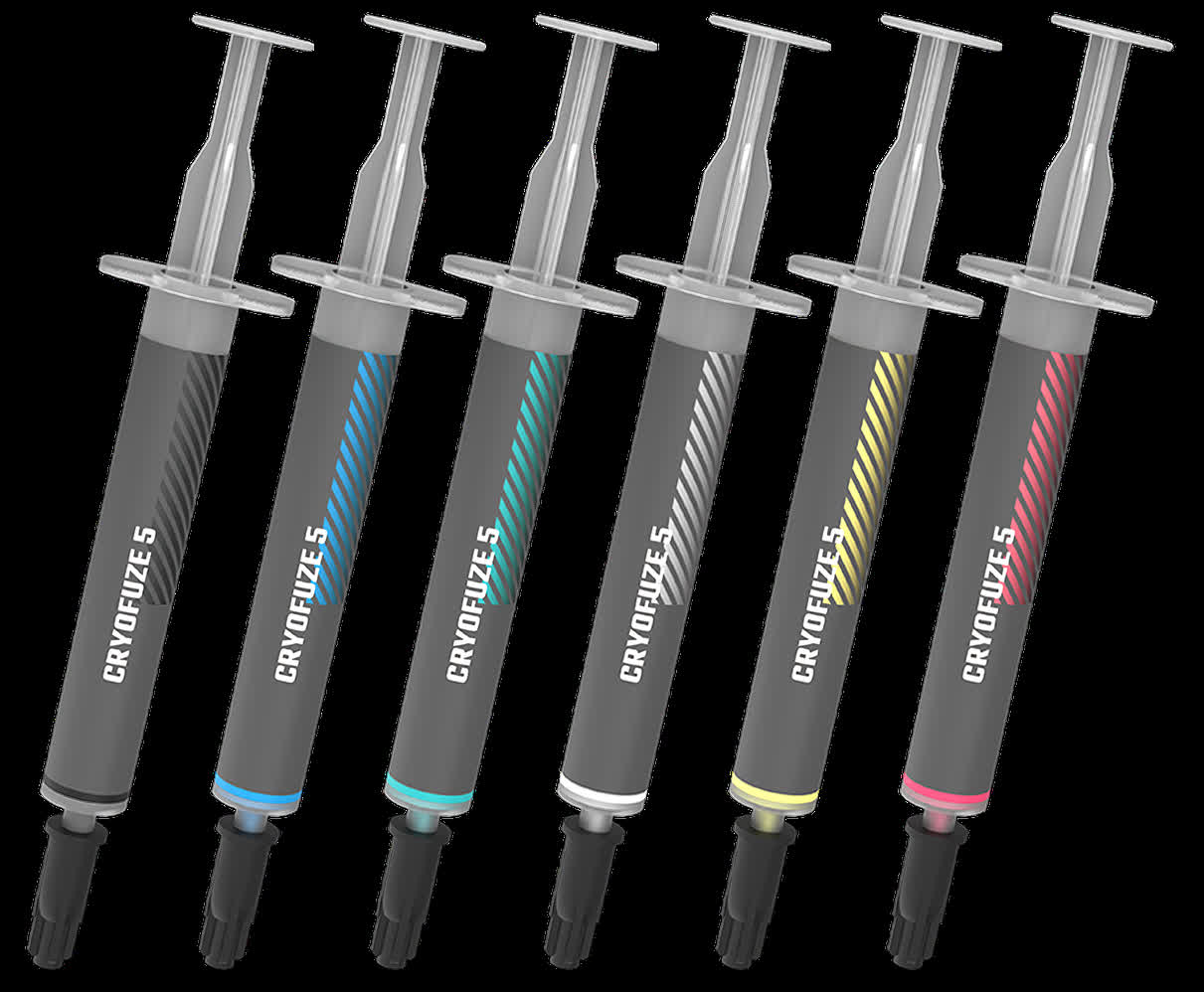We have questions: Cooler Master has introduced a new thermal paste that's left us with more questions than answers at this point. According to the company's listing for its new CryoFuze 5 "AI" thermal paste, it is infused with nano-diamond technology and is shown in six different colors for some reason.

Google translate came up short, so we have no clue why Cooler Master is making six colors of thermal paste. Maybe they serve different purposes, or have varying specifications.
If the coloring in the paste serves no purpose other than for aesthetics, it's more or less pointless. Once thermal paste is installed, it's out of sight and out of mind – never to be seen again (well, not until the next time you remove your heatsink, anyway).
Tom's Hardware was able to determine the paste also uses aluminum powder and zinc oxide, and claims a thermal conductivity coefficient of 12.6 W/mK. If accurate, that'd make it the second best conventional thermal paste (on paper) in the publication's Best Thermal Paste of 2024 guide. Liquid metal offers far better thermal conductivity, but comes with its own set of risks.

The elephant in the room, of course, is the bizarre "AI" claim. Nothing about a thermal paste is AI, so we have to hope that this is simply a translation error going from Chinese to English. Maybe Cooler Master meant it could handle the new wave of AI PCs, but that'd just be silly marking as any decent paste would suffice.
Initial criticism aside, it sounds like Cooler Master has a decent paste on its hands based on the claimed thermal conductivity coefficient. It could help enthusiasts wick additional heat away from their processor, which could lead to higher boost clocks or more stable manual overclocks.
Cooler Master also says the paste is good to operate in temperatures from -50 degrees Celsius to 240 degrees Celsius, making it worth a look by extreme overclockers.
From the WTF dept: Cooler Master's "AI" thermal paste comes in six different colors
